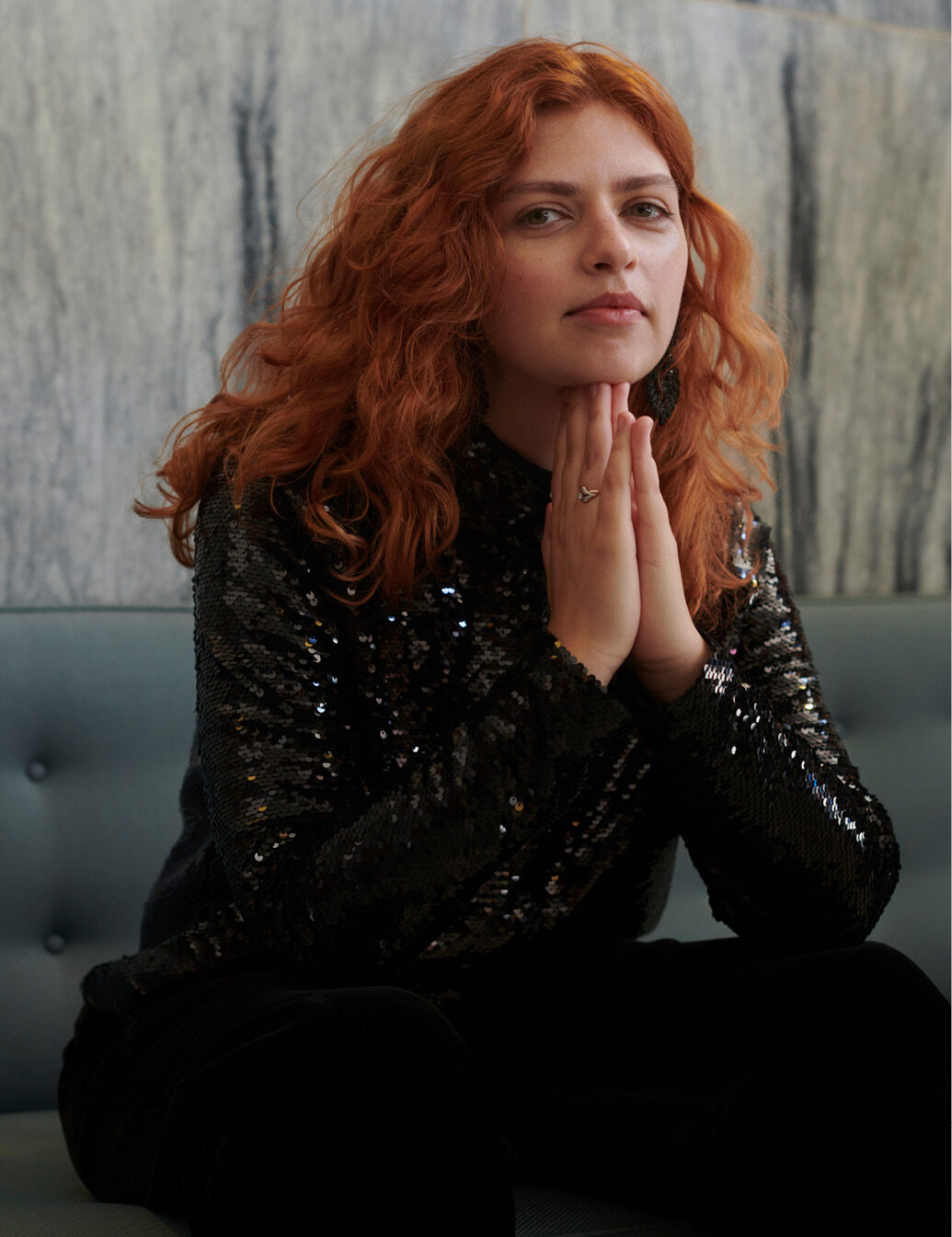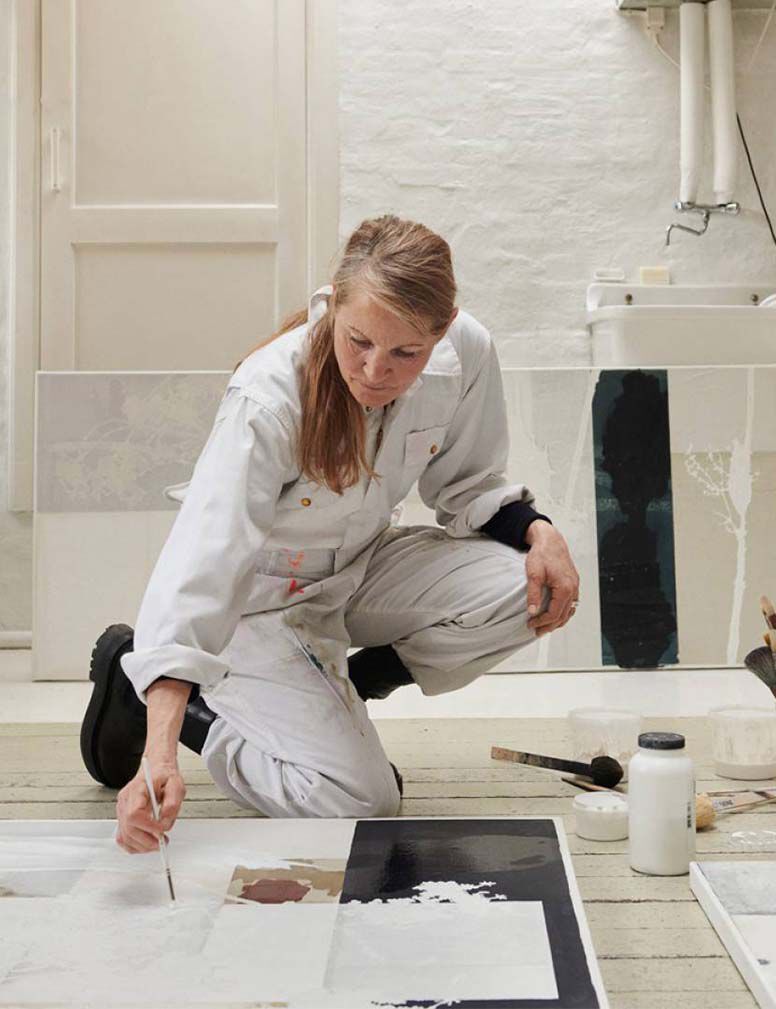Ever since she was a small child, Loa Dalgaard Worm has wanted to save the world. Today, she’s able to come closer to achieving that goal, step by step and day by day, through collaborating closely with companies all over the world to put in place ambitious sustainability strategies. At Masai, she has joined the journey to create the world’s first collection with clothing made from FSC-certified viscose. To Loa, saving the world is about setting ambitious yet realistic goals, as well as stopping beating each other up about not being perfect, but instead focusing on everything that each individual is trying hard to do better, and highlighting that.
Loa Dalgaard Worm
October 2020
Strategic Director, FSC® Denmark



FSC is the little label you see when you buy wood or paper products. It’ll be on your milk carton and newspaper, for example. But it can also be on clothing and dishcloths – things we don’t usually associate with forests, but which are actually made from wood. The label means the wood fibres in the product come from sustainable sources. Specifically, we ensure that more wood is not taken out of the forest than the forest can produce, and that the people living and working in the forest are properly looked after.
If we’re serious about the war against climate change, it’s vital to ensure the world’s forests are used sustainably. This is another reason why I’m so proud that Masai has achieved its goal of creating the world’s first FSC-certified clothing collection, and that I helped to get them started on that journey.
I’ve always wanted to save the world. It’s been a driving force in my life since I was a child. For example, I was given rainforest ownership certificates for my confirmation! So it makes perfect sense for me to be pursuing this as a career. But I also took it too much upon my own shoulders – that it was my responsibility and that I had to do everything right, because otherwise it would be my fault if we didn’t manage to stop climate change. I can see now how crazy that is, but I’d made that connection in my head without realising it, and I think a lot of people in upcoming generations feel this subconsciously – that it’s their responsibility, and that they have to do as much as they possibly can. Obviously, that stresses you out and you end up with climate anxiety! Fortunately, before I became totally depressed, I got help from a skilled psychologist who helped me realise that I can’t save the world alone. This is a job for all of us, pulling together. My job is to inspire and collaborate with the world’s businesses to do as much as possible as quickly as possible. And I feel very lucky to have the opportunity to do this job, and I love every minute of it.



I think it’s very important, when talking about sustainability and responsibility, not to be too saintly. We mustn’t go around accusing each other of all the wrong things we do and all the points where we’re not perfect. Instead, we need to salute all the things we do right and all the points where we’re each taking care to make the world a little better and a little greener. We must inspire each other – not put each other down.
We live in an age that feels insane to us, who are right in the middle of it! We’re having to learn how to navigate a global pandemic. And you might think this would make us forget all the other issues we used to worry about – with the fight for our climate being just one case in point. Luckily, we’re finding that the global crisis has made the fight for the climate even clearer to quite a number of us. Plenty of consumers are starting to consider what products they really want, and what they don’t want – and we’re seeing consumers demanding new business models; not just the linear throwaway mentality.
We’re also seeing companies considering much more deeply what products they actually want to stock, and asking themselves much more fundamental questions about what they want to produce, where and under what conditions they want to produce it, and what they want to produce it from. So, we’re seeing some of the world’s biggest companies setting some very ambitious targets.
60X1200_6.jpg)


COVID-19 in itself didn’t turn us into more conscious consumers. That movement was already under way for a number of years. But we recognise that COVID-19 has generated the momentum to turbo-drive this trend. I think this is because we’ve also had to take a critical look at all kinds of other areas. Every aspect of life is open to questioning. Suddenly, we’ve all been spending a lot of time at home, thinking about what’s around us. Perhaps this has made us want to replace a lot of stuff, but then we’ve had to ask ourselves: is that really necessary? Do I really need all those things anyway? What do I really want? It seems to me we’ve had to question life’s priorities in this new world situation. And I really hope we’ll keep on thinking more about our consumption, making demands about the products we buy, falling in love with the story behind a great upcycled item, and moving naturally towards much more circular ways of using things.
MASAI STORIES are portraits of women's lives, presented through thoughts and reflections from a group of dedicated and passionate women. The stories reflect on diversity, openness, courage and, not least, the freedom to be and want to be yourself. Through meetings these women, who all inspired us with their life choices and creativity, we wanted to create a special insight into women's lives. Our stories portray the strength and beauty that emerges when your life passions are allowed to blossom, and when you choose to listen to yourself and pursue your dreams.
See other stories
See all
Mille Bang
Mille Bang is studying theology and she believes that the love of God is what unites us all. Faith is the backbone of her life, and by applying Kierkegaard’s philosophy, she is able to put Christianity into a modern context that tackles everything from social media to the art of loving others.



